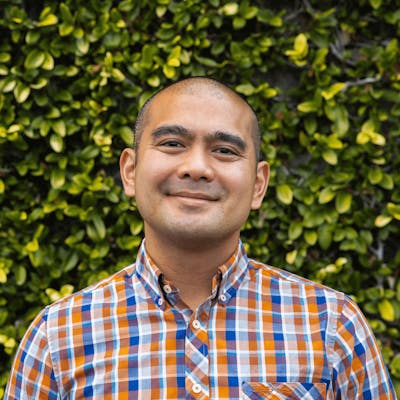My coding Boot Camp holds an alumnus Ask Me Anything (AMA) for each graduating cohort. It’s a great chance for new grads to ask someone who’s been on that same threshold of leaving school and looking for work. I was available to take part in it with two other alumni and had an emotional response to some of the questions asked. Not that the questions were offensive, no one really asks ANYTHING. These questions were the same that came up in my graduating AMA and probably the things I kept wanting some reassurance about as I looked for work.
What do I focus on to best prepare myself for interviews?
One common theme is that new grads are worried about wasting time while preparing for the job hunt. Aside from the job application and the initial screening interview, there are the technical interviews with members of the Engineering Team and your potential boss. We have questions about Data Structures and Algorithms that make up the Quiz Show portion of the interviews, we have... well, plenty to get anxious about.
Personally, I feel like the first step is deciding what kind of jobs you’re looking for. Yeah, it kind of feels like an evading of the question, but hear me out. Do you want to work in Back End? Full-Stack? Front End? I honestly couldn’t decide when I first started looking. So I tried to apply for everything. I didn’t really look adequate for anything because there was no focus. When I realized I wanted to work primarily in the Front End, I was able to focus on certain jobs and tailor my submission materials and portfolio to Front End positions.
Then, I focused on building things with the technologies I wanted to be using. So it was going back over projects, making new ones, and being intentional about how I cleaned things up. Maybe it was that the UI was ugly or non-intuitive. Maybe I learned a new pattern for React Hooks, or realized I could create util files for some of the things I was doing. This worked for me because I learn by doing and discussing the reasons why. The benefit was two-fold here: 1) I was practicing talking about my thought process and was able to give the reasons and 2) I had cleaner portfolio items to show my work.
Don’t mock it before you try it… no, wait. Actually, do that!
The best way to prepare for an interview is by mock interviews. You’ll need a friend, or better yet, a friend’s friend that is an engineer that has done technical interviews! If you have a friend that’s an engineer already then there is someone on their team that’s done interviews. Ask the awkward big favor to be introduced through your friend for a mock interview and use their feedback! I had a friend do that for me and I learned that the take home project was how that company looked to see how your work is organized, explain through comments and variable names, and how much of yourself you put into your project. Honestly, I used to think it was just to see if you could build the thing they’re asking for. Having the criteria spelled out made a big impact.
Naturally, after that mock interview, ask for feedback. But don’t just ask “so what do you think?” I like to at least ask if my explanations were clear, where I seemed the least confident, and why they ask certain interview questions. You could just ask, “based on what you’ve seen so far, what more can I do to assure that I get moved to the next round?” Now remember to thank this person and keep in contact with them. Send them follow up questions every now and again.
How do I stay disciplined after Coding Boot Camp?
For some new grads, Coding Boot Camp brought some solid structure to their day. You had to be in class at a certain time and someone had arranged and scheduled your work for you. Given I was trying to self-learn while working a full-time management position and parenting, the defined structure was what I really appreciated about Boot Camp over self-study. As a new graduate, you’ll have to start creating that schedule for yourself. Maybe even keep the same hours if your life still allows it.
For me, I didn’t have that option available. My partner and I had to readjust schedules to better distribute childcare so our main income earner (not me) could earn the money. In this scenario, the advice is to do what you can when you can. It’s a different definition of discipline when most of your time is accounted for. My schedule was a whiplash between preschool drop-offs, pick-ups , nap times, meals, and opening a ridiculous amount of browser tabs and organizing them by priority to come back to later.
Now that I’ve written a paragraph that shows I’m wanting some credit for how hard my job hunt was (love me), here are some concrete actions for you to take:
- Get an accountability buddy. This can be someone you’re graduating with, your partner that doesn’t want to be the only earner in the house, or anyone that make sure you follow through.
- Set up a schedule with your accountability buddy, including what kind of studying you’re planning to be doing and what your minimum targets for applications out and contacts reached. Make sure to create time slots for mock interviews.
- Let yourself have consistent rest days. Generally speaking, if you take a day off to rest, you won’t miss out on the magical once-in-a-lifetime job offer that will make Life better for your great-grandchildren. Even Olympic-level athletes have a Rest Day in their routine.
How do I make sure I don’t burn out in my first week on the job?
I think first and foremost you need to find out what HR stuff you need to prioritize. You are new and onboarding is done differently at every company. The only constant is that HR will have deadlines for you regardless of any other role responsibilities. Get the HR stuff done so you can get paid, get your benefits taken care of, and be a responsible employee. Everyone on your team remembers what it was like in onboarding. They should want you to succeed and they’re been through it too. I don’t know what kind of person would hold you back from your success, but you should watch them like a hawk. They’re up to something.
Check with your new boss and team members to see if there are any traditions or expectations for your first week or two. I know of workplaces that have a tradition of new Engineers having a pull/merge request in their first week. This could be a real ticket or just a spelling change to make sure you can effectively push your commits and create Pull Requests. Regardless, start asking for specifications of expectations early and show you want to get it right.
Meet and talk to 1) your boss, 2) the Engineer on the team that’s been there the longest, and 3) the next newest team member. You learn pet peeves, long-standing issues, and how onboarding has changed since just before you got there.
Be done at a designated time. Do this always, not just in the first week. My platonic ideal is to give myself 15 minutes of that time to make notes. This way I remember where I left off and what I was going to try next, and I have my ToDo List for the next day. Then I put it all away until the next day.


